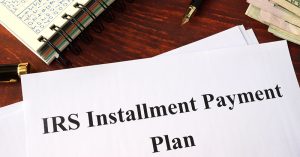Local IRS offices in California: IRS help from Tax Debt Advisors, Inc
Are you in need of locating the most convenient IRS office? Below is a list of all IRS office addresses and phone numbers in California. For other local IRS office locations click here.
Bakersfield IRS Office: 4825 Coffee Rd #200 Bakersfield, CA 93308 Phone: 844-545-5640
Camarillo IRS Office: 751 Daily Dr Camarillo, CA 93010 Phone: 844-545-5640
Carpinteria IRS Office: 1145 Eugenia Pl #201 Carpinteria, CA 93013 Phone: 844-545-5640
El Centro IRS Office: 2345 S Second St El Centro, CA 92243 Phone: 844-545-5640
El Monte IRS Office: 9350 East Flair Dr El Monte, CA 91731 Phone: 844-545-5640
Fresno IRS Office: 2525 Capitol St Fresno, CA 93721 Phone: 844-545-5640
Laguna Niguel IRS Office: 24000 Avila Rd Laguna Niguel, CA 90802 Phone: 844-545-5640
Long Beach IRS Office: 501 W Ocean Blvd Long Beach, CA 90802 Phone: 844-545-5640
Los Angeles IRS Office: 300 N Los Angeles St #1259 Los Angeles, CA 90012 Phone: 844-545-5640
Modesto IRS Office: 1700 Standiford Ave Modesto, CA 95350 Phone: 844-545-5640
Oakland IRS Office: 1301 Clay St Oakland, CA 94612 Phone: 844-545-5640
Palm Springs IRS Office: 556 S Paseo Dorotea Palm Springs, CA 92264 Phone: 844-545-5640
Redding IRS Office: 850 Industrial St Redding, CA 96002 Phone: 844-545-5640
Sacramento IRS Office: 4330 Watt Ave Sacramento, CA 95821 Phone: 844-545-5640
Salinas IRS Office: 928 East Blanco Rd #121 Salinas, CA 93901 Phone: 844-545-5640
San Bernardino IRS Office: 290 North D St San Bernardino, CA 92401 Phone: 844-545-5640
San Diego IRS Office: 880 Front St San Diego, CA 92101 Phone: 844-545-5640
San Francisco IRS Office: 450 Golden Gate Ave San Francisco, CA 94102 Phone: 844-545-5640
San Jose IRS Office: 55 S Market St #100 San Jose, CA 95113 Phone: 844-545-5640
San Marcos IRS Office: 1 Civic Center Dr San Marcos, CA 92069 Phone: 844-545-5640
Santa Ana IRS Office: 801 Civic Center Dr W Santa Ana, CA 92701 Phone: 844-545-5640
Santa Barbara IRS Office: 1332 Anacapa St Santa Barbara, CA 93101 Phone: 844-545-5640
Santa Maria IRS Office: 2384 Professional Parkway Santa Maria, CA 93455 Phone: 844-545-5640
Santa Rosa IRS Office: 777 Sonoma Ave Santa Rosa, CA 95404 Phone: 844-545-5640
Stockton IRS Office: 4643 Quail Lakes Dr Stockton, CA 95207 Phone: 844-545-5640
Van Nuys IRS Office: 6230 Van Nuys Blvd Van Nuys, CA 91401 Phone: 844-545-5640
Visalia IRS Office: 5300 W Tulare St Visalia, CA 93277 Phone: 844-545-5640
Walmut Creek IRS Office: 185 Lennon Ln Walnut Creek, CA 94598 Phone: 844-545-5640
Tax Debt Advisors, Inc – Scott Allen, E.A.
3155 E Southern Ave Ste 101 Mesa, AZ 85204 Phone: 480-926-9300




